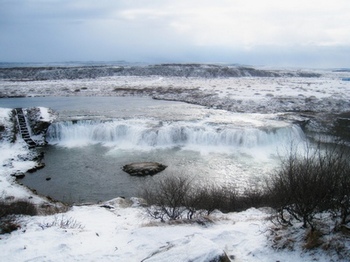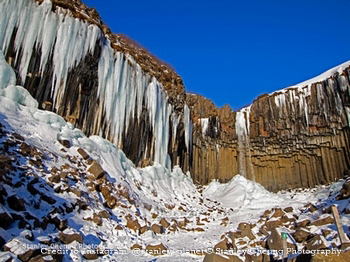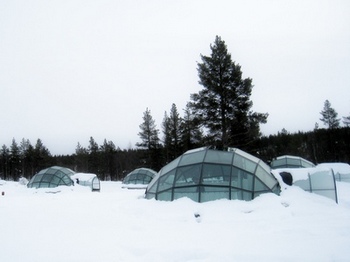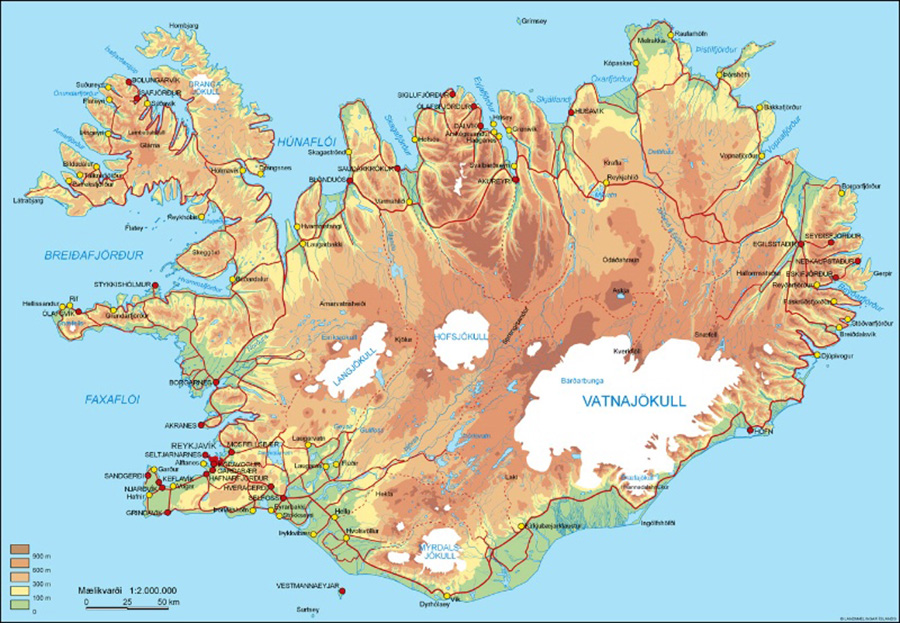Home > Europe > Iceland



ICELAND
 The Country
The Country
Island is an island of 103,000 km2 about the sie of Portugal, Cuba, South Korea, the US state of Kentucky and the Indian state of Bihar. Its highest peak, Hvannadalshnjukur, rises to 2,110 m and over 11 per cent of the country is covered by glaciers, including Vatnajokull, the largest glacier in Europe.
Flag
Blue with a red cross outlined in white. The colours are symbolic for Iceland: red is for the volcanic fires, white recalls the snow and glaciers, and blue is for the skies above.
Population:
Out of a population numbering around 330,000 about 65% live in the capital Reykjavik and its neighbouring towns in the southwest. Keflavik International Airport is located about 50 km from the captial. The highland interior is uninhabited and uninhabitatable due to glaciers, mountains and desert landscape. Most centres of population are situated on the coast.
Capital City:
Reykjavik.
Language:
Icelandic, a North Germanic language derived from Old Norse. English is widely spoken and understood.
Religion:
Predominantly Christian.
Currency:
The Icelandic krona (ISK)
Time:
Icelandis on Greenwich Mean Time (GMT) throughout the year.
Size:
103,000 sqm slightly bigger than Hungary and Portugal, and slightly smaller than Cuba.
Glaciers:
Glaciers cover 11,922 sqm of the island's surface. Iceland is home to Vatnajokull National Park, the largest national park in Europe.
Season and Climate
The Icelandic climate is warmer than the name suggests, thanks to the Gulf Stream. Summers in Iceland are rather cool, while the winters are relatively warm. The average montly summer temperate ranges from 10 to 13 °C. During the summer the climate is mild but unstable with possible rain and frequent weather changes. The daily temperature can fluctuate from a minimum of 5°C at night to a maximum of 25°C during the day.
Average Temperatures in Celsius (centigrade):
| Jan | Feb | Mar. | Apr | May | Jun | July | Aug | Sept | Oct | Nov | Dec | |
| Reykjavik | -0.5 | 0.4 | 0.5 | 2.9 | 6.3 | 9.0 | 10.6 | 10.3 | 7.4 | 4.4 | 1.1 | -0.2 |
| Akureyri | -2.2 | -1.5 | -1.3 | 1.6 | 5.5 | 9.1 | 10.5 | 10.0 | 6.3 | 3.0 | -0.4 | -1.9 |
Sunrise and Sunet:
| Reykjavik | |||||||||||
| Jan | Feb | Mar | Apr | May | Jun | July | Aug | Sept | Oct | Nov | Dec |
| 11:19 | 09:55 | 08:21 | 06:42 | 04:39 | 03:15 | 03:07 | 04:50 | 06:16 | 07:36 | 09:24 | 10:51 |
| 15:44 | 17:29 | 18:59 | 20:22 | 22:12 | 23:39 | 23:55 | 22:15 | 20:37 | 18:57 | 16:58 | 15:44 |
| Akureyri | |||||||||||
| Jan | Feb | Mar | Apr | May | Jun | July | Aug | Sept | Oct | Nov | Dec |
| 11:31 | 09:51 | 08:09 | 06:23 | 04:09 | 02:22 | 02:02 | 04:20 | 05:55 | 07:22 | 09:19 | 10:59 |
| 15:01 | 17:03 | 18:40 | 20:11 | 22:12 | 24:03 | 24:27 | 22:14 | 20:26 | 18:40 | 16:32 | 15:05 |
Business hours:
Banks are open from 09:15 to 16:00 hrs. As general rule offices are open from 09:00 to 17:00 hrs. In some cases during the summer these hours are from 08:00 to 16:00hrs. Shops are open from 09:00 to 18:00 hrs on weekdays. Kringlan and Smaralind shopping malls as well as souvenir and some bookshops in the city centre are open on weekends.
Credit cards
They are accepted by most shops, restaurants and organizations and are widely used. The major credit cards in Iceland are Visa and Eurocard, although other cards are accepted as well in some places.
Tax free shopping/tax refund
A refund of the local Value Added Tax is available to visitors to Iceland. The refund will result in a reduction of up to 15% of the retail price, provided departure from Iceland is within 30 days after the purchase is made. The purchased amount must be no less than ISK 4.000,- (VAT included) per sales receipt, and all goods (except woollens) must be packed in sealed bags or containers.
Tipping in Iceland
In Iceland gratuity is always included in the bill therefore tipping is optional, not required. This applies to everything: restaurants, taxis, tour guides, cafes, room service...etc. As with any other country, if you do feel that you have received great service, Icelanders appreicate a tip.
Best time to travel
Iceland is a country that inspires visitors year-round. Spring offers brightening days and emerging flora and fauna; excellent for bird watching. June to August is considered summer in Iceland which has nearly round-the-clock sunlight and balmy weather; the time of the midnight sun and the travel periodthat is best for outdoor activities such as hiking, biking, rafting, kayaking, fishing, whale watching and camping. Autumn brings a wonderful change in colors while whinter features dary mysterious days, softly glowing northern nights and even occassionally snow. The norther lights season is from mid-September to mid-April. The hardest part is choosing when to visit Iceland.
|
|---|
Newsletter Subscription: 訂閱最新旅遊資訊
Site Map · Privacy Policy 私隱政策(只附英文版)
© 2020 Exotic-Holidays.hk · All Rights Reserved.
![]()